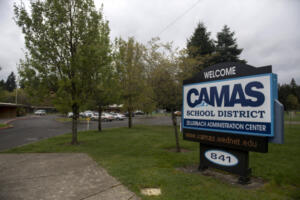Camas voters may have a say in whether or not the city can collect a new utility tax, after all.
On March 2, a Skamania County Superior Court judge ruled that the referendum process, which would ultimately allow voters to determine the fate of the city’s newly adopted, two-year, 2% utility tax, must go on.
At issue were 305 pages of petitions to send the utility tax issue to the voters. A group known as “Fix Camas” had kicked off the referendum process in late 2022, following the Camas City Council’s 4-3 votes on Nov. 22, 2022, to implement a new, 2% utility tax on its residential, commercial and industrial water, stormwater, sewer and garbage users.
The Council’s vote followed several warnings from city staff that, without increasing and diversifying revenues, the city was facing a structural deficit — when baseline expenditures, including staff salaries and benefit costs, would outpace the amount of money the city takes in.
Though the Council ultimately voted 4-3 in favor of the new utility tax (Councilmembers Don Chaney, Tim Hein and Leslie Lewallen cast the three “no” votes), it also set conditions that rebates and exceptions be given to qualifying low-income residents, and that the new tax would “sunset” or end with the creation of a regional fire authority or by Dec. 31, 2024, whichever comes first.





